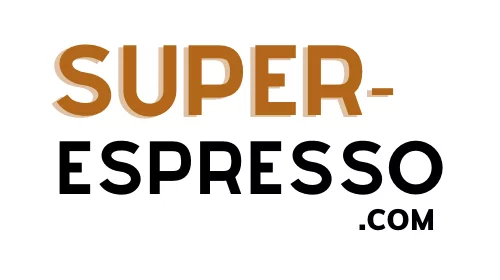You’ve probably seen many coffee bean packaged labelled as Espresso beans or Espresso Roast. As Espresso is a coffee concentrate that is very strong in taste, many people associate it with higher caffeine content. However, that is not necessarily the case.
Before we get into the details of what espresso beans are and if they are any different than other type of coffee beans, let’s get straight to the point.
Do Espresso Beans Have More Caffeine Than Coffee Beans?
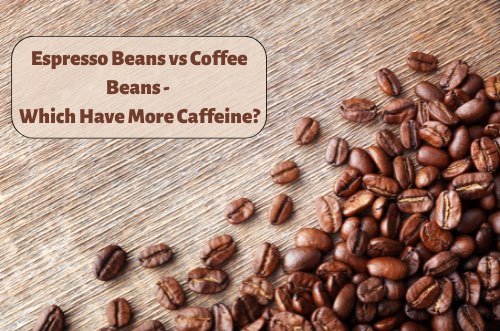
Espresso beans taste stronger, but they do not have more caffeine in them, not necessarily.
Caffeine content of a cup of coffee or espresso comes from various factors such as the roast, the origin and the type of beans used (Arabica or Robusta). All those combined will determine the caffeine content of your cup.
Espresso beans, however, do taste stronger than regular coffee beans. And here’s a thing that many people get confused: Stronger tasting coffee does not mean more caffeine. The strength of a coffee is not related to its caffeine content. You can have a decaf cup of coffee and it can still taste very strong. So treat those two things independently of one another.
Now, to understand why Espresso beans are not necessarily more caffeinated than other beans, we have to understand the difference between them.
Espresso Beans vs. Coffee Beans, What’s The Difference?
Here’s another surprise…. There’s no such thing as ‘espresso beans’ or ‘coffee beans’. They are all coffee beans that can be used in any brewing methods you like. Beans are beans, it’s up to you how you brew them, whether you use them for filter coffee, french press, pour-over or espresso machine.
What is Espresso Roast, Then?
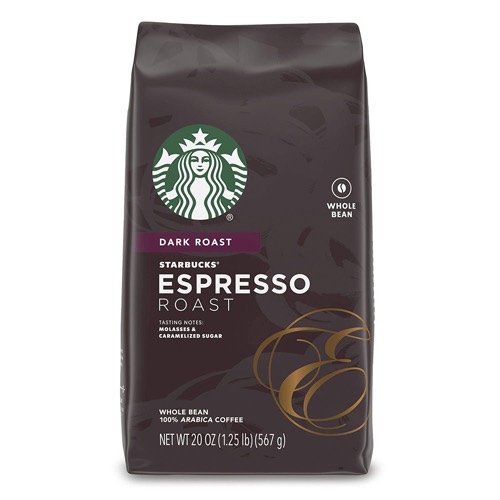
Espresso roast is pretty much a ‘marketing term’ used to describe coffee beans that have been dark roasted. The roast of these beans is so dark that it tastes strong enough to be like espresso.
Now here’s the thing… these beans have been exposed to heat long enough that they lose many of its caffeine content and that’s why when it comes to caffeine, it actually has LESS than other coffee beans.
Rule is: the more beans are roasted, the more caffeine they lose as heat changes their original properties.
What Are Coffee Beans?
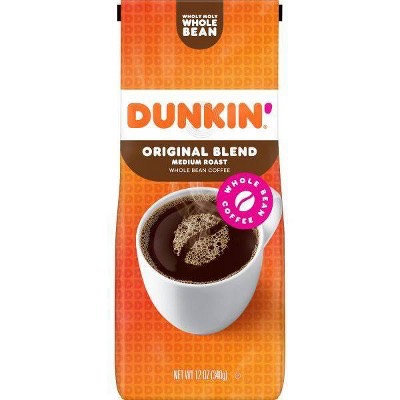
Coffee beans are pretty much the same beans as ‘espresso beans’, the difference is in how they have been roasted.
Coffee beans, which is what many people would pick up when brewing for a drip machine or manual brewing method like pour over, french press or V60.
These beans range in roast from light, medium or dark. Dark here is actually a step below espresso roast, medium is what most people would enjoy for a balanced cup of coffee or espresso, light roast surprisingly has the most caffeine but the mildest taste of all.
Arabica vs Robusta Beans
Other elements that affect the caffeine content of coffee is whether it’s a single origin, pure Arabica or a blend of Arabica or Robusta.
Arabica is the most popular varietal of coffee sold. Some brands add in Robusta to their Arabia beans to make it taste stronger and add in more caffeine. Robusta is horrible tasting on its own, so I wouldn’t recommend it, but when mixed in (the percentage is mostly below 30% or 20% Robusta) with Arabica, it elevates its strength and boosts the caffeine content.
Can You Use Coffee Beans for Espresso and Espresso Beans for Filtered or Pour Over Coffee?
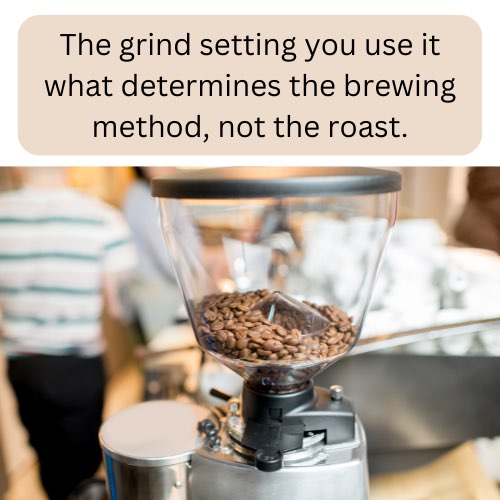
Yes, indeed!
It doesn’t matter which type of beans you choose really, what truly matters is how you grind them for your brewing method.
Here’s a quick cheat sheet to help you out:
What Coffee Strength Do You Prefer?
| Flavor Strength | Roasting Profile | Caffeine Content |
| Mild | Light (Blond) | Highest |
| Balanced | Medium to Medium Dark | High |
| Strong | Dark Roast (French Roast) | Medium |
| Really Strong | Espresso Roast | Less |
Now, how will you prepare those beans?
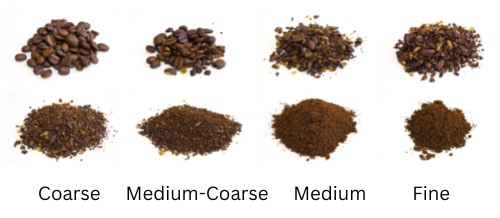
| Brewing Method | Grind Level |
| Espresso Machine – Moka Pot | Fine grind |
| Drip Coffee Maker | Medium to Medium Coarse |
| French Press | Coarse |
| Pour-over, Chemex, V60 | Medium |
In Conclusion…
It doesn’t matter if you choose espresso beans or coffee beans, those terms are used to refer to the roasting profiles of those beans.
Strong tasting coffee does not means more caffeine. In fact, lighter roasts have more caffeine in them. Unless you opt for a mix of Arabica and Robusta beans, which will taste stronger and will have more caffeine.
What really matters is how you grind your beans and not which roast you choose. Pick the right grind for your brewing methods to ensure the best results.
